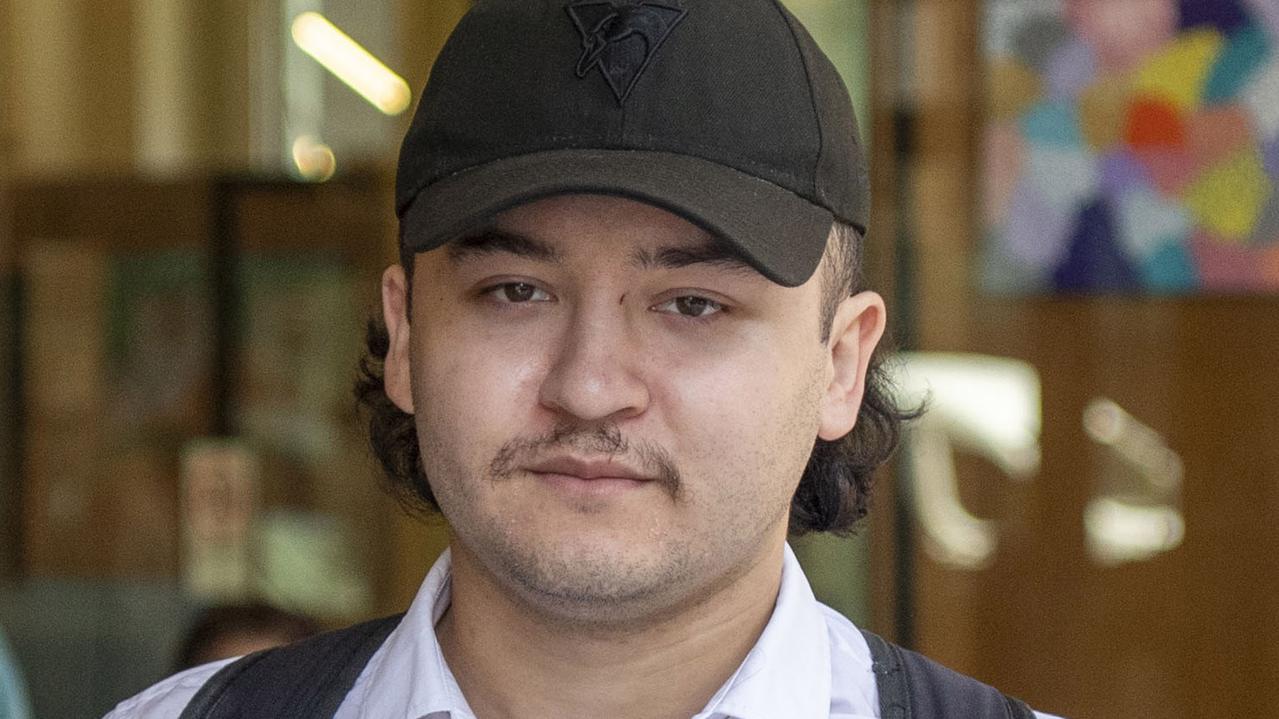Vandals cut down Tasmanian coloniser William Crowther’s statue hours before court confirms legitimate removal
Vandals have jump the gun on a local court decision to remove a divisive “coloniser” statue, taking matters into their own hands.

News
Don't miss out on the headlines from News. Followed categories will be added to My News.
Vandals have jumped the gun on a local court decision to remove a controversial statue of coloniser William Crowther, taking matters into their own hands.
The Tasmanian Civil and Administrative Tribunal ruled in favour of the statue’s removal on Wednesday after years of deeply divisive debate.
In 1869, politician and surgeon Crowther, who also served as the state’s premier, removed and stole the skull of Aboriginal man William Lanne, intending to send it to London’s Royal College of Surgeons.
He reportedly replaced the skull he stole with one from another corpse to conceal the act.
His statue has recently been viewed as an insult to Tasmania’s indigenous community.
Despite the unsettling chapter of his history, Crowther’s monument has stood tall in central Hobart’s Franklin Square since 1889.
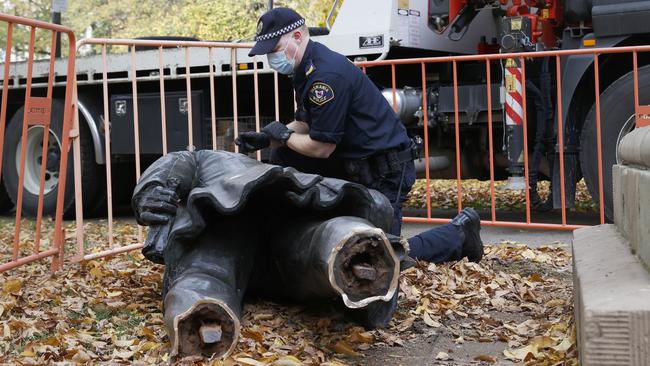
The Hobart City Council voted to remove the controversial figure in 2022, leaving only the plinth behind.
The council’s decision was appealed to Tascat, which ultimately upheld the council’s decision.
But on Wednesday morning, before the decision was handed down, Crowther was found cut off below the knees with the words “decolonise” and “what goes around” spray-painted on the plinth.
Tasmania Police and Hobart City Council are investigating.
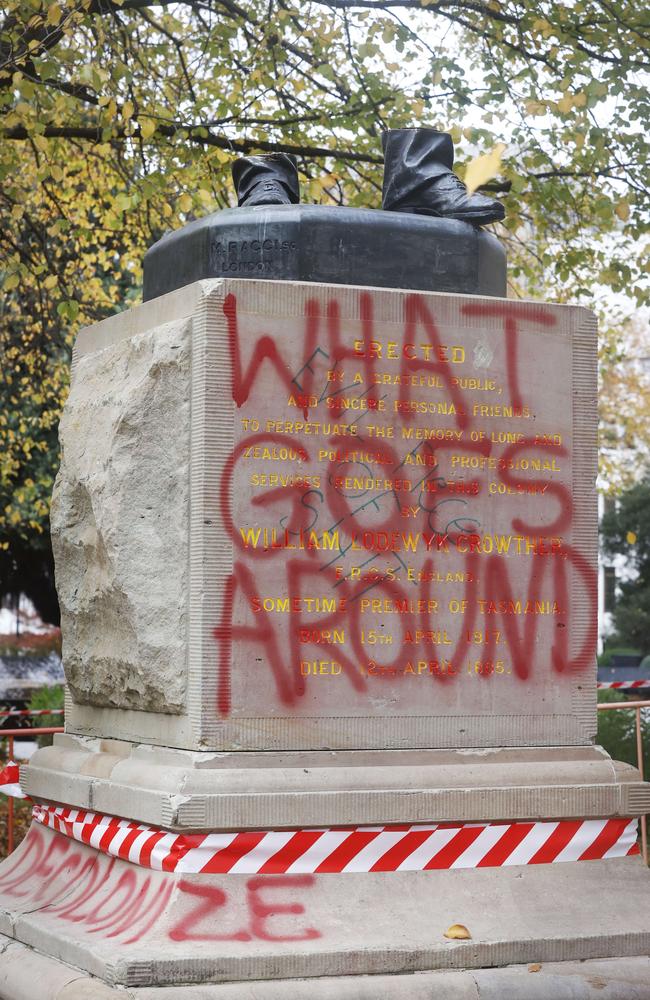
Following news of the vandalism, leading campaigners for its removal, the Tasmanian Aboriginal Centre wrote on social media: “Grave robbers, skeleton robbers, and deniers of the attempted genocide in our State do not deserve respect today! Is it ‘vandalism’? We think it’s truth telling!”
Hobart City Councillor Louise Elliot, a vocal proponent of keeping Crowther’s statue untouched, posted on social media disgusted by the vandal’s alleged acts.
In her video statement, after the decision was handed down, she lamented a lack of security around the statue, which has been the target of vandalism in the past.
“I was told the patrols would be increased and I said, ‘that’s not sufficient’,” she said.
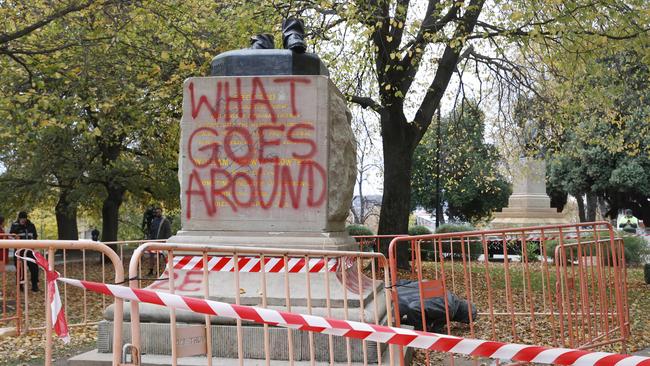
“Today should have been about accepting (TASCAT)’s decision, but I think the vandalism has turned it into a much more disrespectful and really divisive situation.”
She added the attack on the statue showed “complete and utter disrespect for other people’s heritage”.
Speaking of the local Aboriginal community’s ultimately successful lobbying for Crowther’s removal, Cr Elliot feared “there will be other removals on their hit list.”
Hours after the controversial figure had been illegally removed, Tascat president Malcolm Schyvens stated: “The proposal will change the monument and its appearance by removal of the statue and placement of an adjacent sign”.
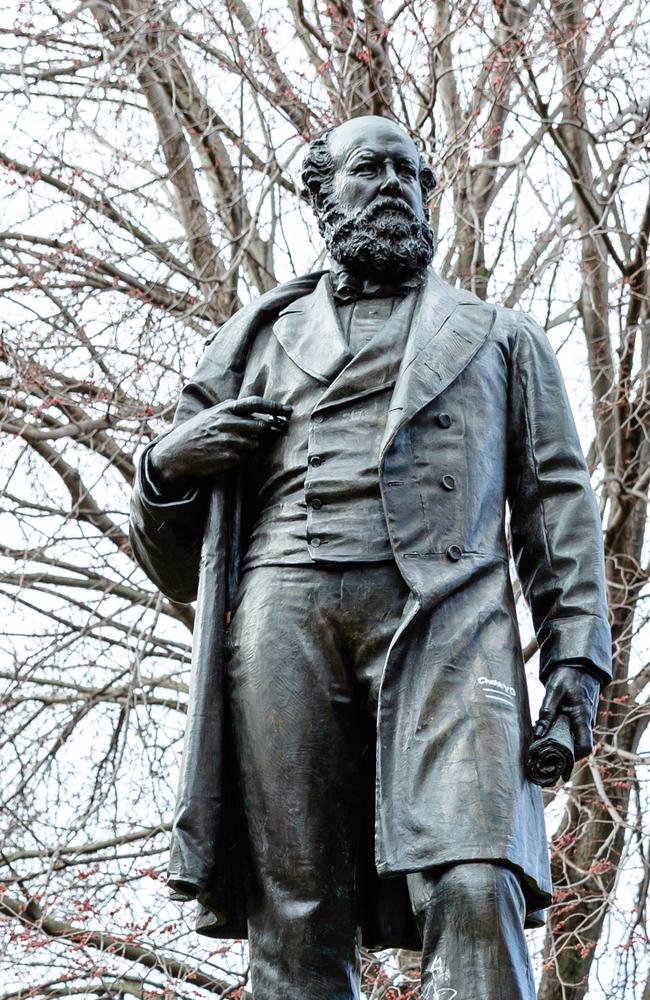
“That may be regarded as having some negative outcome historically, visually and aesthetically, but there are also positive resulting impacts.
“An understanding of the change will be fostered through the appropriately sited and scale temporary signage, which is intended to be replaced in time with permanent signage.”
The tribunal also dismissed the suggestion that Crowther’s removal would detract from the heritage of Franklin Square.
“It will conserve and enhance the heritage values of the square as identified in the conservation plan,” Mr Schyvens wrote in his decision.
“It will add values as a record of various aspects of history.”
“None of the grounds of appeal are made out.”
Originally published as Vandals cut down Tasmanian coloniser William Crowther’s statue hours before court confirms legitimate removal



